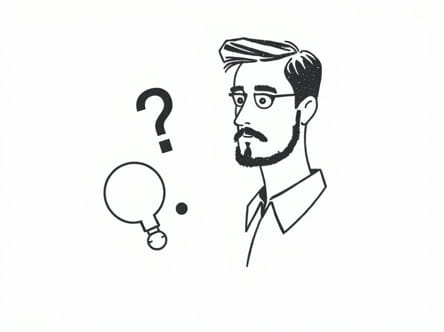A biographical sketch is a short piece of writing that gives a brief overview of a person’s life, achievements, character, and key experiences. Whether you are writing about a historical figure, a public personality, or someone you know personally, asking the right questions is critical to crafting a meaningful and accurate sketch. These questions help uncover details that provide context, add depth, and paint a vivid picture of the subject’s life. The more specific and relevant the questions, the better the biographical sketch becomes.
General Background Information
Basic Details
These fundamental questions lay the foundation for any biographical sketch. They help establish who the person is, where they come from, and the key dates that shape their life timeline.
- What is the full name of the person?
- When and where were they born?
- What was their family background like?
- Where did they grow up?
- What were their early influences or environment?
Education and Learning
Education often plays a vital role in shaping a person’s career, values, and achievements. These questions help uncover that part of the story.
- What schools or universities did they attend?
- Did they receive any special training or certifications?
- Who were some influential teachers or mentors?
- Did they enjoy school, and what subjects were they most interested in?
- Did any major educational achievement stand out?
Career and Achievements
Professional Journey
The career section of a biographical sketch reveals what the person dedicated most of their working life to. It shows their contributions and professional impact.
- What was their first job?
- What kind of work are/were they known for?
- What major accomplishments have they achieved in their field?
- Have they received any awards or honors?
- Did they make any major innovations or discoveries?
Turning Points and Milestones
Every person’s journey is marked by specific moments that lead to growth or change. Identifying these events helps to build a compelling and authentic biographical sketch.
- What was a key turning point in their career or life?
- Were there any challenges they had to overcome?
- What decision significantly impacted their success?
- Did they experience any failures that taught valuable lessons?
- When did they achieve national or international recognition, if any?
Personal Life and Beliefs
Family and Relationships
The personal aspect of a biographical sketch gives readers insight into the subject’s humanity and everyday life.
- Are they married or have they been married?
- Do they have children?
- Who are some important people in their life?
- What role has family played in their journey?
- How have personal relationships influenced their work or choices?
Values and Personality
Character and beliefs are central to a person’s identity. These questions help express what kind of person the subject is, beyond their career or public image.
- What values are most important to them?
- How would they describe themselves?
- What do others say about their character?
- Are they known for specific habits or routines?
- Do they follow any religion or philosophy of life?
Hobbies, Interests, and Passions
Personal Enjoyment
Learning about what someone enjoys outside of work makes a biographical sketch more relatable and layered.
- What are their hobbies or pastimes?
- Do they participate in sports or artistic pursuits?
- What kind of books, music, or films do they like?
- Have they traveled extensively?
- Are they involved in community service or charitable work?
Creative and Social Activities
Sometimes the most memorable parts of a person’s life are connected to how they express themselves creatively or connect socially with others.
- Do they write, paint, or create art in any form?
- Are they active on social media or digital platforms?
- Do they belong to any clubs, organizations, or societies?
- Have they been involved in any public causes?
- What inspires or motivates their creative expression?
Legacy and Impact
How They Made a Difference
One of the most compelling reasons to write a biographical sketch is to show how someone influenced their world, however big or small that world might be.
- What is their legacy?
- How have they impacted others’ lives?
- What contributions continue to be recognized today?
- Have they mentored or inspired future generations?
- What lessons can be learned from their life story?
Special Considerations for Biographical Sketch Writing
Tone and Audience
It’s important to match the tone of your writing to the intended audience. If it’s for school, keep it clear and informative. If for publication, you might add more narrative or stylistic flair. Ask yourself:
- Is the biographical sketch formal or informal?
- Who is the reader students, scholars, or general public?
- Should it highlight inspiration, education, or factual details?
Verifying Facts
Accuracy is essential. When possible, cross-check answers or interview the person if they’re still alive. This ensures the final piece remains authentic and respectful.
A biographical sketch is much more than a list of dates and facts it’s a reflection of a person’s journey, values, struggles, and triumphs. Asking the right questions can lead to a rich and compelling narrative that does justice to the individual’s life. Whether for an assignment, a tribute, or a publication, these guiding questions help gather the essential information needed to write a powerful and memorable biographical sketch.
